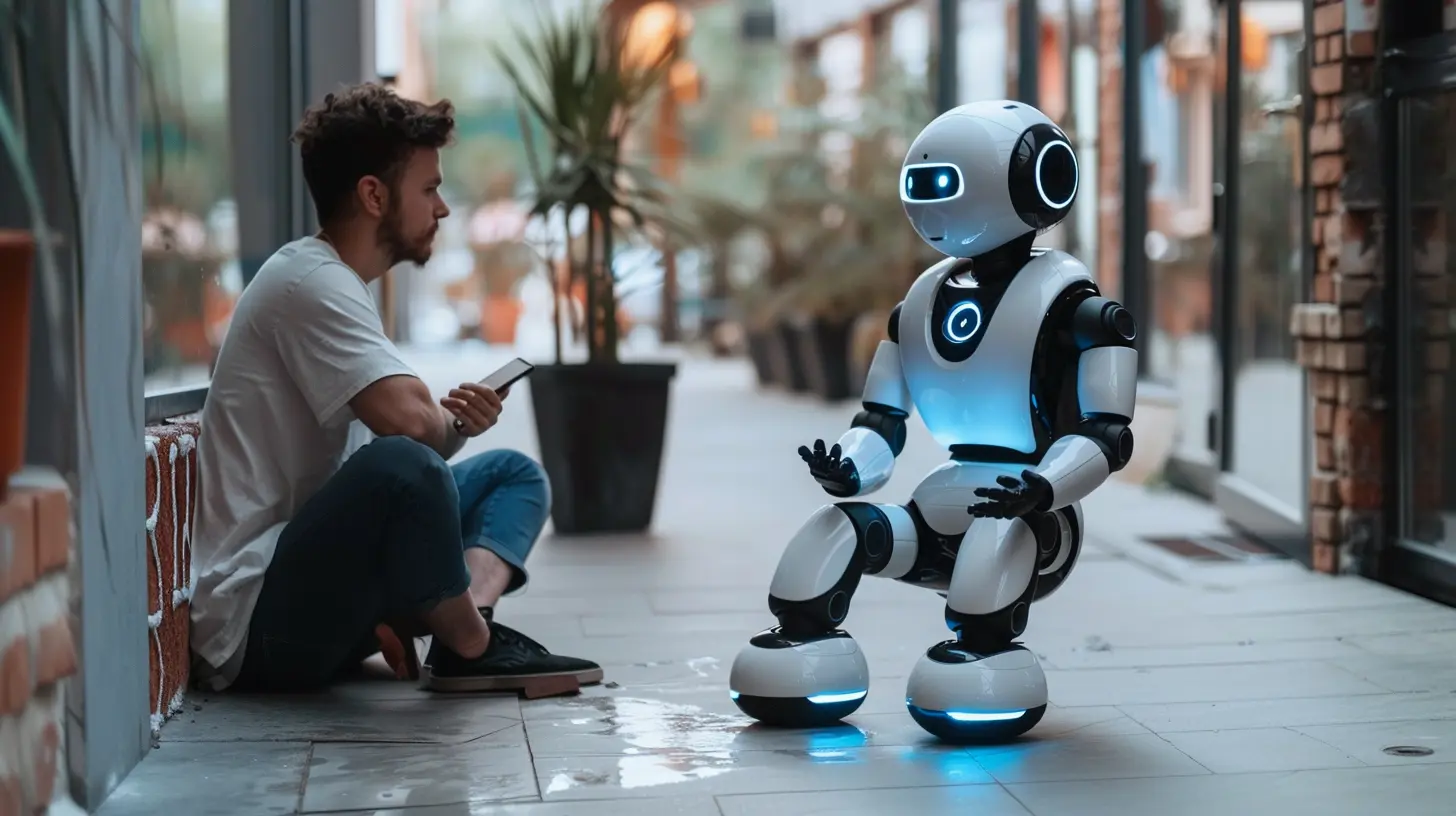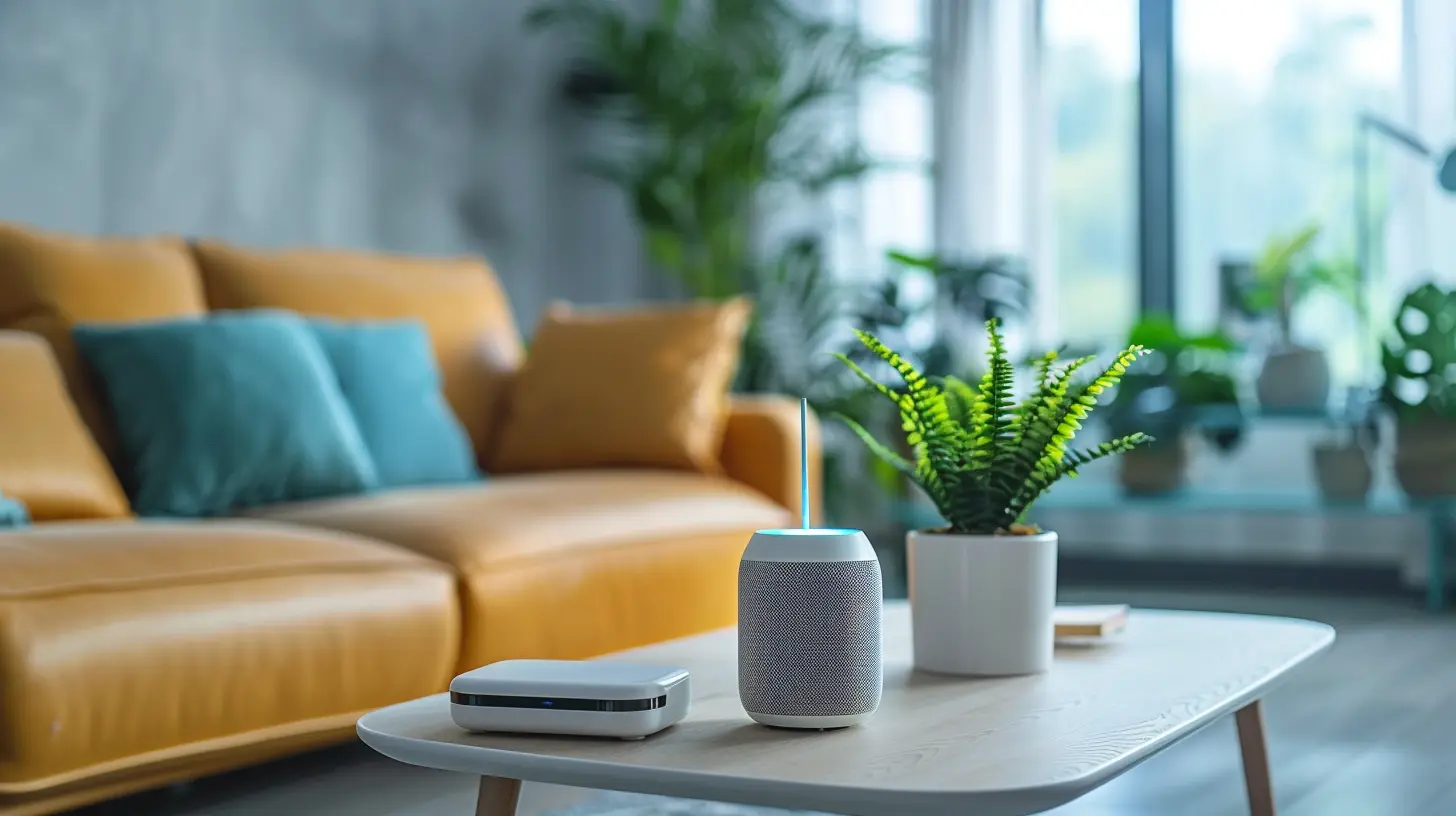How Digital Assistants are Revolutionizing Elderly Care
13 June 2025
Let’s face it—aging isn’t always easy. As we grow older, everything from remembering to take our meds to staying connected with loved ones can become a challenge. But here’s the good news: we're living in a time when tech isn’t just for the young and tech-savvy. Enter the digital assistant. These AI-powered helpers, like Amazon's Alexa, Google Assistant, and Apple’s Siri, aren’t just playing your favorite tunes or turning on the lights—they're helping transform the way elderly care is being delivered.
In this blog post, we're going to take a deep dive into how digital assistants are changing the game for older adults, their families, and caregivers. We'll walk through the real-world benefits, the challenges that still linger, and what the future might hold. So, whether you're a caregiver, a tech enthusiast, or someone thinking ahead about aging gracefully, this one’s for you.
The Rise of Digital Assistants in Daily Life
Before we get into the nitty-gritty of elderly care, let’s take a quick look at what digital assistants actually do.These voice-activated AI companions are built into devices like smart speakers, phones, and even TVs. You can ask them to set reminders, answer questions, control your smart home, and more. Think of them as your digital butler—they're always on, always ready to help, and never need a coffee break.
For the elderly, digital assistants offer a hands-free, intuitive way to interact with technology. No complicated buttons, no confusing menus—just talk, and it listens.
Breaking Barriers: Independence Through Technology
One of the biggest fears people have about aging is losing their independence. Nobody wants to feel like they're a burden or lose control over their day-to-day life. That’s where digital assistants really shine.Reminders and Routines
Forgetfulness is a common issue among seniors. It happens to the best of us, right? But missing a dose of medication or a doctor’s appointment can be a big deal. Digital assistants can be programmed to give gentle reminders throughout the day.Need to take a pill at 9 a.m.? Alexa’s got your back. Have a physical therapy session at 2 p.m.? Google Assistant will remind you.
Voice Commands = Ease of Use
For elderly individuals with arthritis, tremors, or limited mobility, using a smartphone or computer can be frustrating. Digital assistants eliminate the need for screens and typing. Everything is done through voice.It’s like talking to a helpful friend who’s always nearby.
Staying Connected and Combatting Loneliness
Let’s talk straight—loneliness is more than just feeling sad. For seniors, it’s a serious public health issue, linked with depression, cognitive decline, and even heart disease. But here’s how digital assistants can help bridge that human connection gap.Making Communication Easier
Digital assistants can be synced with phones or apps like Zoom to make hands-free calls. Grandma doesn’t need to sift through contacts or dial numbers—just a simple “Alexa, call my daughter” does the trick.Daily Companionship
While a device can’t replace human interaction, it can offer a comforting presence. Some seniors even treat their digital assistants as companions. They ask about the weather, joke around, or even play trivia games together. It can make the home feel a little less empty.
Health Monitoring and Emergency Support
Technology today isn’t just smart—it’s proactive.Smart Home Integration
Digital assistants can be hooked up to health monitors like heart rate trackers, blood pressure machines, or glucose meters. These devices can send alerts if numbers go outside safe ranges, and some can even notify caregivers or doctors instantly.Emergency Help at a Word
Instead of fumbling for a phone in a crisis, a simple voice command like “Hey Siri, call 911” can make all the difference. Some systems even come with fall detection or panic buttons paired with digital assistants for even faster response times.Empowering Caregivers and Family Members
Caring for a loved one is rewarding—but let’s not sugarcoat it, it's also tough. Juggling work, life, and caregiving responsibilities? Exhausting. That’s why digital assistants have become a secret weapon in the caregiver's toolkit.Peace of Mind Through Notifications
With permission, caregivers can get updates or alerts if something seems off. Maybe the senior didn’t respond to their morning reminder, or their glucose levels spiked unexpectedly. It’s like having an extra set of digital eyes and ears.Remote Management
Caregivers can set reminders, schedule appointments, or check in—all remotely. There’s no need to be physically present every time. This not only lightens the load but also helps seniors maintain their independence.Challenges of Using Digital Assistants in Elderly Care
Okay, time to pump the brakes a bit. While digital assistants are doing amazing things, they’re not perfect. There are still some speed bumps on the road.Privacy Concerns
Let’s be honest—having a device that’s always listening can feel a bit creepy. Seniors might worry about data security, or who’s getting access to their information. Manufacturers need to continue improving transparency and control over privacy settings.Tech Adoption Barriers
Not all elderly individuals are comfortable talking to machines. Some grew up in a time where phones had rotary dials, not touchscreens. Teaching them how to use digital assistants can take time, patience, and ongoing support.Accessibility and Cost
High-speed internet, smart devices, and subscription services aren’t cheap. For seniors on a fixed income, the cost can be a real hurdle. Hopefully, more affordable and user-friendly options become available as demand grows.Real Stories, Real Impact
Let’s take a moment to highlight some real-world examples. These stories are just the tip of the iceberg but show the incredible potential of digital assistants in elderly care.Meet Margaret, Age 82
Margaret lives alone in a quiet suburban neighborhood. Her daughter works full time and can’t visit every day. With her Amazon Echo, Margaret gets medication reminders, greets her daughter with a cheerful “Good morning” call, and listens to her favorite 60s tunes every afternoon. She says, “It’s like I have someone here with me. It keeps me company.”The Johnsons, Full-time Caregivers
The Johnson siblings take turns caring for their aging father who has Alzheimer’s. They connected his smart home system to Google Assistant, which turns on lights automatically, keeps track of appointments, and notifies them if their dad tries to leave the house at night. It’s made caregiving not just easier—but safer.The Future of Elderly Care: Smarter, Safer, More Connected
We’re just scratching the surface here. As AI technology improves, we can expect digital assistants to become even more tailored to elderly needs.We’re talking about:
- AI that understands emotion and adapts its tone
- Integration with wearable tech for real-time health updates
- Personalized routines based on user behavior and preferences
- Voice recognition that differentiates between users in the same home
It’s not science fiction anymore—it’s the direction we’re heading.
Final Thoughts: A Helping Hand That Listens
At the end of the day, the goal of elderly care isn’t just safety—it’s dignity, autonomy, and quality of life. Digital assistants aren’t just gadgets. They’re becoming companions, caregivers, and lifelines in ways we never imagined a decade ago.Are they perfect? Nope. But they're evolving every day, and they’re already making a meaningful difference in thousands of lives.
So if you’re caring for an aging parent, or thinking ahead about your own future, it might be time to say, “Hey Google, how can you help?
all images in this post were generated using AI tools
Category:
Digital AssistantsAuthor:

Jerry Graham
Discussion
rate this article
2 comments
Giovanna Mendoza
This article highlights the transformative impact of digital assistants in elderly care, showcasing how technology enhances communication, improves daily routines, and promotes independence for seniors. It's inspiring to see how these innovations can significantly improve quality of life for older adults and their families.
June 16, 2025 at 4:08 AM

Jerry Graham
Thank you for your thoughtful comment! I'm glad you found the article inspiring and reflective of the positive changes digital assistants bring to elderly care.
Sasha McGlynn
Digital assistants in elderly care? Finally, someone to remind Grandma to take her meds and not to start a karaoke party at 3 AM! Who knew technology could be the ultimate wingman for family gatherings and grandma’s cheerful ‘get-off-my-lawn’ moments?" 🎤👵✨
June 15, 2025 at 3:21 AM

Jerry Graham
Absolutely! Digital assistants are bridging the gap in elderly care, ensuring timely reminders and adding a touch of fun to daily life—while keeping Grandma happy and on schedule! 🎉


